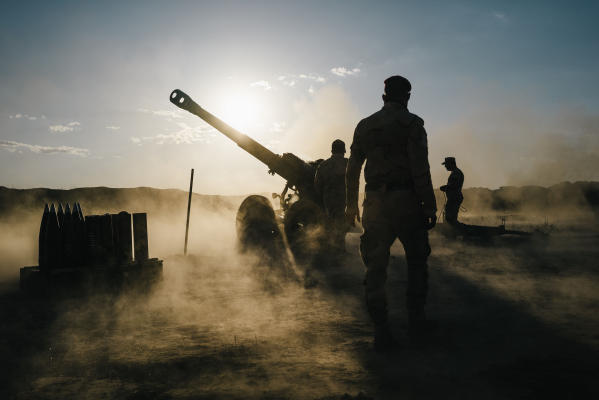A young girl, members of her family, girls from her village and from Iraqi Yazidi villages were kidnapped by ISIS fighters who gang raped them. All of this was done in the name of Islam and under its banner at a time when there are still a handful of extremists among us who publicly and frequency praise these criminals by using false justifications such as “jihad” and “supporting Muslims”!
One of their victims was a courageous Iraqi girl called Nadia Murad who dared to tell her story and that of her family. She made those at the UN Security Council chamber who were listening to the gory details of what happened to her and about 5,000 Iraqi women kidnapped by ISIS last year cry. Some of these women are still in ISIS controlled areas.
I watched her interview with Mr Hassan Muawad on Al-Arabiya news channel. She did not talk about her personal tragedy and the horrors that she experienced, but about the wider tragedy of how these ugly ideas are transformed into glorified actions, and how more and more men are committing such crimes while clerics justify them.
ISIS fighters killed 700 unarmed men from her village and executed them in one hour for no reason. They were all villagers and farmers. Murad said she and her family were taken to Mosul, Tal Afar and Al-Hamdaniya. She was repeatedly raped and no longer knew anything about her family as she was separated from them. No one can forgive the perpetrators for committing these crimes and who they represent.
Despite the anger and the pain that she feels, Murad said that she was touched by her visit to Egypt and the conversations that she had with people there. She is content to convince society to reject extremism and not by hating the society in which these ISIS fighters came from. However, her tragedy and that of her people will remain a disgrace to the world forever. How can such crimes that are based on ideas promoted by the media, mosques and schools over a period of years take place in the twenty first century?
The problem is with extremists, or rather, the preachers of extremism. They don’t necessarily live in Raqqa or Mosul and they might live among us in Paris or Kuala Lumpur. They legalise rape, murder and attacks on anyone who does not seem like them. They are the source of the disease.
The extremist preacher Wagdy Ghoneim said a few days ago that the late Ahmed Zewail, the Egyptian Nobel Prize for science winner, was not a Muslim. This is a new crime that was committed in public and yet no one did anything. Ghoneim cites an extremist who is like him; Nasser Al-Fahd. The difference between the two is that the latter is a detainee in Saudi Arabia and the former speaks as he wishes without being held accountable. He incites viewers on TV and through his social media accounts and websites. There are many like him.
We are living in exceptional circumstances and unless we send serious messages to extremist preachers that they will be punished for their calls to extremism, terrorism will not stop. There are terrorists who kill and rape all around the world and they are the product of men like Ghoneim who denounce others as disbelievers and curse them.
